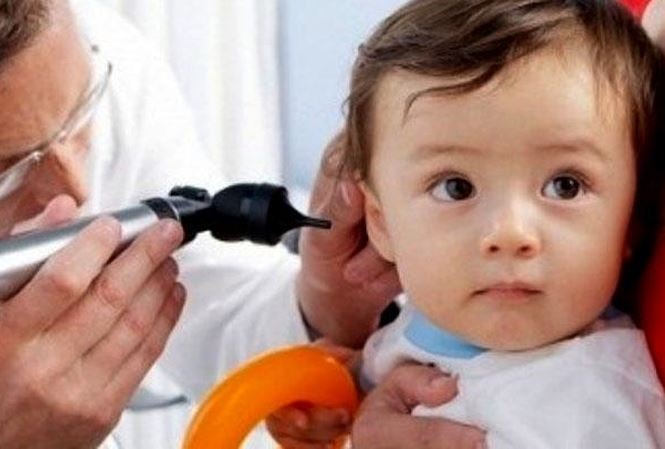5 early signs to help identify deaf children
Children with hearing loss will have slow language and intellectual development and face difficulties in life. Worse, if not detected and treated promptly, children will be permanently disabled.

The effects of hearing loss depend largely on the age of the patient. If not detected and treated promptly, hearing loss patients will not be able to communicate, will not be able to learn from the sounds around them, especially in children, children will have slow language and intellectual development and will have difficulties in life.
More seriously, the child will become permanently disabled. Therefore, timely detection and intervention will give the patient a great opportunity to restore hearing, develop language skills, integrate into the community and reduce the burden on the child, family and society.
Caregivers need to pay attention to observe children from the first months of life, because from birth children begin to hear, because if they cannot hear, they will not be able to speak.
To detect early hearing loss or congenital deafness in children, parents need to monitor their children's reactions. For example, if a 5-6 month old baby is sleeping and makes a loud noise and the baby does not respond, or if a 7-8 month old baby is called but does not respond, adults need to take the child to see a doctor immediately.
Parents can rely on the following signs to recognize hearing loss in young children:
- Newborns:Based on the child's hearing and movement reflexes. Normally, children blink, move their arms and legs, cry, or startle when there is a sound. Children with hearing loss will not have these responses.
-Children from a few months to 1 year old:Know how to pay attention, look, and turn their heads in the direction of sounds made by instruments such as rattles and bells. When hearing sounds that are too loud such as thunder or car horns, they will be startled, wake up, or cry. Deaf children will not have these reflexes.
-Children from 1-3 years old: Can speak, can say common words like grandma, mom, eat... If hearing impaired, children will show signs of slow speech, lisp, or not be able to speak. Children do not respond when adults ask or call, or only respond to loud sounds.
-Children over 3 years old:The above signs are increasingly obvious, such as slurred speech, only being able to say certain consonants or vowels.
-School-age children:Children with poor hearing, slow learning, poor learning compared to classmates, lack of concentration, irritable, do not want to interact, talk, do not want to participate in group activities...









